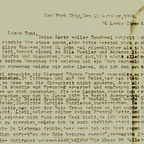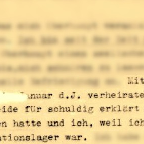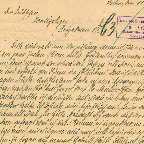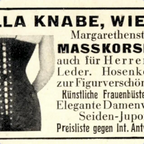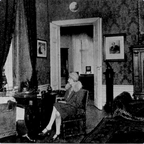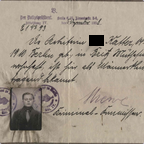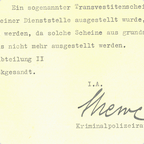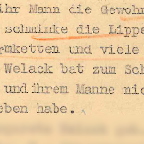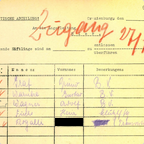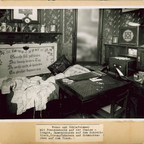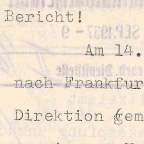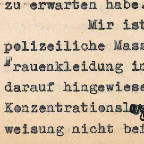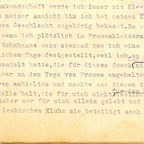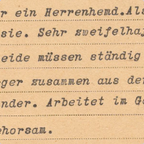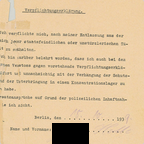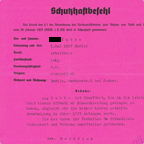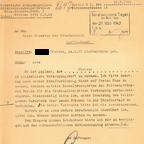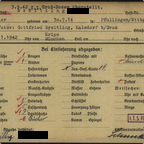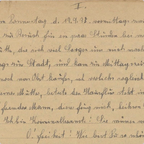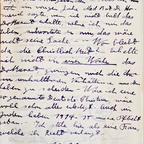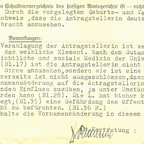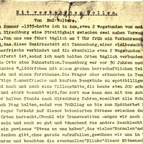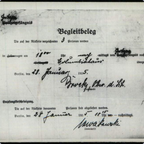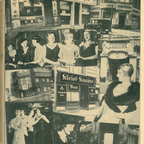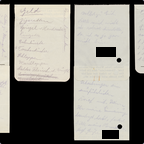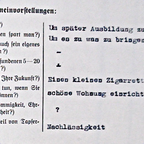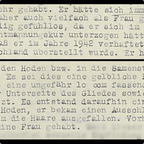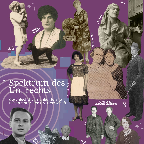Discrimination in Everyday Life
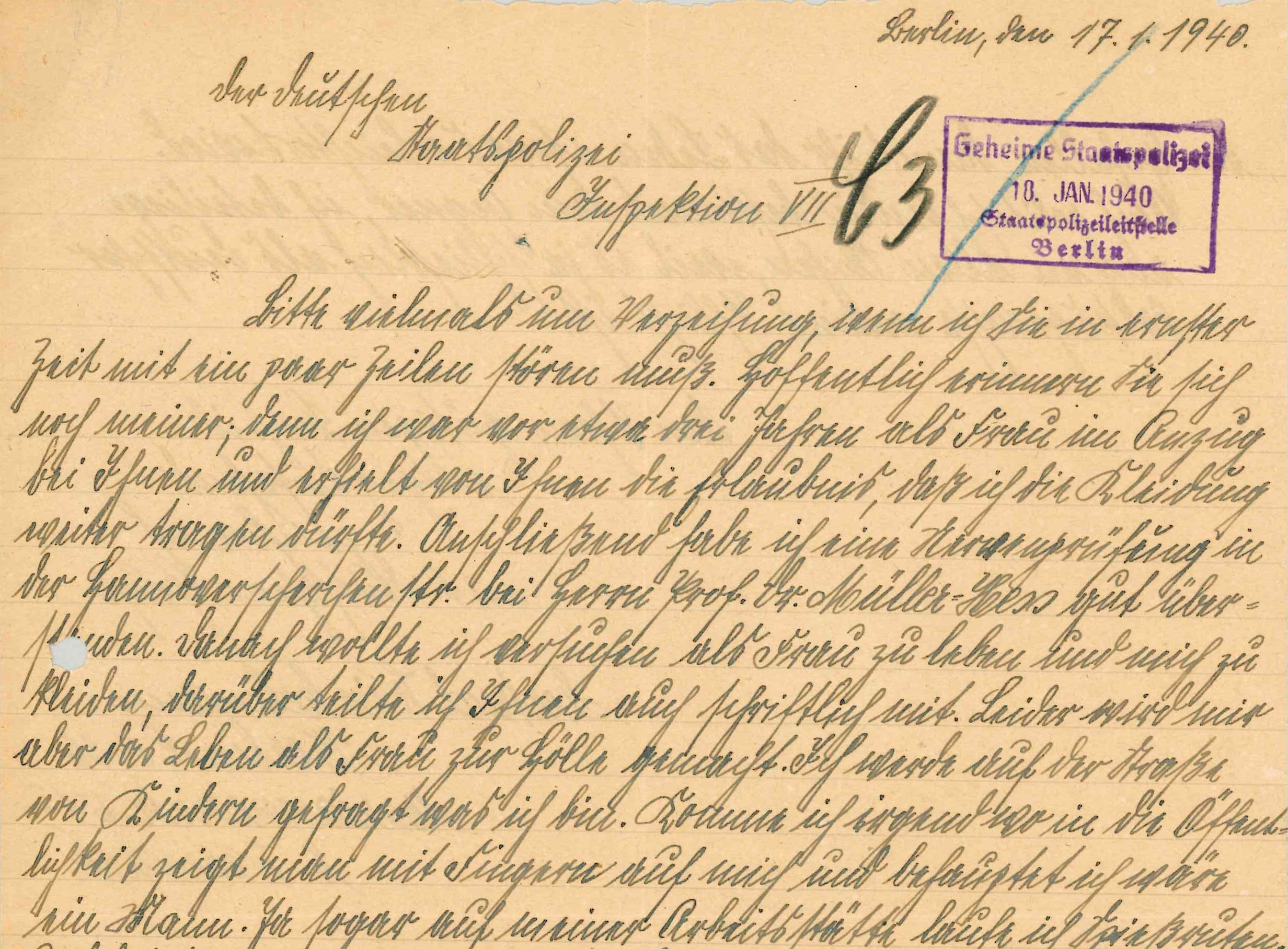
© Berlin State Archives, read full script.
_Winkelmanns letter to the Gestapo
In this letter to the Gestapo, _Winkelmann describes the constant discrimination in everyday life as a gender nonconforming person, whether on the street or at work. _Winkelmann asks the Gestapo for permission to wear male connoted clothing and to change their first name. Towards the end of the letter, they ingratiate themselves with Nazi politics.
Political ingratiation was either a strategy for asserting one's own needs, or a way of showing actual support for Nazi politics. A combination of both was possible as well. We don't fully know about _Winkelmann's motives.
Everyday discrimination by colleagues, authorities, the social environment and family could have negative effects on the mental and physical health of gender nonconforming people. Discrimination carried a high risk of job loss, suicide and depression. This risk increased due to the general tendency towards isolation as a result of the destruction of queer friend circles and community structures. A lack of understanding and violence by medical staff and authorities offered additional potential for negative effects on the health, finances, freedom and legal status of those affected.

